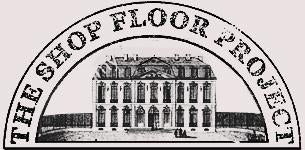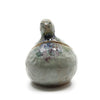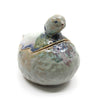Your cart is currently empty!
-
SHOP COLLECTIONS
- CHRISTMAS COLLECTIONS
- CHRISTMAS | ARTIST-MADE GIFT GUIDE
- NEW | BIRD TRAYS BY DENISE ALLAN
- NEW | BEASTS BY KAREN THOMPSON
- NEW | HARVEST BOWLS & JUGS
- NEW | WINTER WHITE & POTTER'S HONEY
- NEW | TEA CADDIES BY TRACEY JOHNSTON
- NEW | PAPER CUT COLLAGES BY MARION ELLIOT
- ARTISTS PRINTS
- CERAMICS
- PAINTINGS & ORIGINALS
- ARTISTS' CUSHIONS
- CRAFT KITS
-
SHOP BY MAKER
-
SHOP COLLECTIONS / ARTISTS' PRINTS
- All Prints
- Vernacular Crafts & Shops by Marion Elliot
- The Night Forest by Denise Allan
- Gods, Dreams & Fairy Tales by Kosuke Ajiro
- Papercut Quilts by Sarah Battle
- An Artist's Garden by Georgie Richardson
- Painted Portraits by Michaela Gall
- The Gardeners by Miku Tsuchiya
- The Plant Hunter by Denise Allan
- A Golden Age by Raphael Balme
- Paper Parables by Lisa Sandner
- In the Garden by Raphael Balme
- Blue Works by mirocomachiko
- Assimilation by Dillon Marsh
- Birds of a Feather by Denise Allan
- Feast of Auricula by Denise Allan
- 17th Century Paintbox
- Folk Art Fish
- The Botanist by Moira Frith
- Hot House Plants by Samantha Allan
- Wall Flora Studies by Denise Allan
- Bird Studies by Denise Allan
- Exotic Pets by Raphael Balme
- Estuary Structures by Denise Allan
-
SHOP COLLECTIONS / CERAMICS
-
SHOP COLLECTIONS / Paintings & Originals














 Dennis Severs’ House is a gem of early 18th century London architecture. Built in 1724 and saved from dereliction by the Spitalfields Trust, Dennis Severs reconfigured it in the 1970’s to tell the story of an imaginary Huguenot family who had lived there since it was built in 1724.
Dennis Severs’ House is a gem of early 18th century London architecture. Built in 1724 and saved from dereliction by the Spitalfields Trust, Dennis Severs reconfigured it in the 1970’s to tell the story of an imaginary Huguenot family who had lived there since it was built in 1724. The remarkable thing about the house is that it is set out as if the family has just left for the day, with surprising and humourous details at every turn.
The remarkable thing about the house is that it is set out as if the family has just left for the day, with surprising and humourous details at every turn. 








